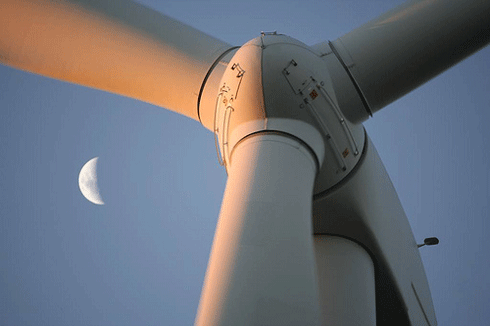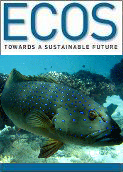
|
Published: 4 June 2012
Australian renewables investors unprepared for global growth
According to a new report, the renewable energy sector is set to defy a global downturn in mergers and acquistions. But Australia is not moving quickly enough to take advantage of it.

|
|
More than 70 per cent of respondents to a KPMG survey on renewable energy investment said they were attracted to wind investments. Credit:
David Clarke. Licensed under a Creative Commons Attribution Non-Commercial No-Derivatives License.
|
Green Power 2012 is financial services firm KPMG’s annual survey of global renewable energy mergers and acquisitions.
The report found that over the next 18 months, an increased deal activity in the renewable energy sector is expected on the part of private equity and infrastructure funds.
The survey, which highlights the drivers of global deal activity, found that 92 per cent of all respondents expected infrastructure funds and private equity investors to be the most active in buying and investing in renewables (up from 64 per cent a year ago). This was followed by independent power producers at 87 per cent (up from 61 per cent last year), marking a distinct shift away from utilities companies which historically have been the most active acquirers.
Despite 70 per cent of respondents indicating that it is now harder to secure debt financing to fund acquisitions of renewable projects and companies, the report found that the majority of respondents (85 per cent) expect renewable energy deal flow to remain robust in the next five years. More than 70 per cent said they were attracted to hydro, onshore wind and solar photovoltaic (PV) investments in particular, confirming that they are seen as safe havens for long-term money.
There was significantly greater confidence amongst respondents of an increase in deals valued below US$500 million (60 per cent) compared to those anticipating deals with a value in excess of US$500 million (28 per cent).
The research has found that green energy globally is becoming viewed by some investors in much the same way as conventional infrastructure asset classes, like water companies and electricity grids.
‘This is good news as it means renewables are seen as safe and stable, hence the return required by investors is reduced and overall renewables becomes better value for money for energy consumers as they require fewer subsidies,’ says Matthew Herring, KPMG Australia’s National Leader of Renewables.
The report warns that the positive sentiment of investors today could be badly affected by regulatory uncertainty.
‘Although Australia’s renewable energy policies have become more supportive of the industry in recent years, like the bi-partisan support of the Renewable Energy Target (RET) scheme, there is still uncertainty about state-based policies which does little to fuel investor confidence,’ says Mr Herring.
The news will provide a welcome boost to the industry which entered 2012 on a more subdued note in terms of deal volumes. This is in stark contrast to 2011, which was a good year for renewables mergers and acquisitions with deals valued at US$51.2 billion announced globally during the year, a significant increase on the US$24.2 billion recorded in 2010.
In 2011, deal activity showed a particular surge in wind and solar sectors; however, both were far outstripped by the rapid increase in deal activity in the biomass sector which leapt 300 percent.
In terms of where future investment is expected to come from, the report predicted a major ramp-up in outbound investment from Asia, continuing the growing trend seen in 2011. Five of the top ten most likely countries or regions for renewable energy investment in the next 18 months are in Asia.
‘Given our proximity to – and strength of relationships with – these countries, we should be making Australia a more attractive place for renewable energy investment by continuing to progress policies, addressing infrastructure challenges, collaborating better with the resource sector and motivating domestic investors. The positive is the prevailing strength of the Australian economy, which is bucking global downturn trends and adding some comfort to prospective inbound investors,’ says Mr Herring.
Source: KPMG



